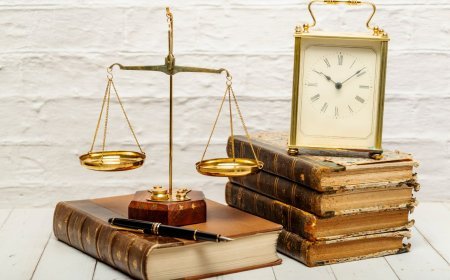How is the Canadian Legal System Unique?

Canada’s legal system is a fascinating blend of history, culture, and modern principles. Rooted in both English common law and French civil law, it reflects the country’s diverse heritage. This dual structure, combined with a focus on fairness, rehabilitation, and inclusivity, sets Canada apart globally.
But what makes it truly unique? From bilingualism to Indigenous legal traditions, Canada’s legal system is a testament to adaptability and respect for diversity. Defense Lawyers, especially, witness its complexities and strengths every day. Let’s explore these features in more detail.
The Dual Legal System
One of Canada’s most defining traits is its dual legal system. Unlike many other countries, Canada incorporates two distinct legal traditions: English common law and French civil law.
Most provinces and territories, including Alberta, follow the common law system. This system is based on judicial precedents, where past rulings influence future decisions. It provides flexibility and allows the law to adapt to changing societal needs.
In Quebec, however, civil law governs private matters like property, contracts, and family law. This system is rooted in the Napoleonic Code and emphasizes written statutes over judicial interpretations.
The coexistence of these two systems is rare and remarkable. It allows Canada to address legal issues with precision and respect for its historical roots. For Defense Lawyers, this duality offers unique challenges and opportunities, especially when cases involve overlapping jurisdictions.
The Canadian Charter of Rights and Freedoms
The Canadian Charter of Rights and Freedoms is a cornerstone of the legal system. Introduced in 1982, the Charter guarantees fundamental rights and freedoms to all individuals in Canada.
Key rights include freedom of expression, equality before the law, and protection against unreasonable searches and seizures. The Charter ensures that these rights are upheld across all levels of government.
Defense Lawyers frequently rely on the Charter to defend their clients. For example, if evidence is obtained unlawfully, the Charter can render it inadmissible in court. This emphasis on individual rights makes Canada’s legal system distinct and just.
In Edmonton, Defense Lawyers use the Charter to challenge unfair practices and ensure that justice prevails. Their work highlights the system’s commitment to fairness and accountability.
The Role of Defense Lawyers
Criminal Defense Lawyers are vital in maintaining the integrity of Canada’s legal system. They represent individuals accused of crimes, ensuring that their rights are protected and they receive a fair trial.
In Edmonton, Defense Lawyers handle a wide range of cases, from minor offenses to serious crimes like theft, assault, and fraud. Their role involves challenging evidence, cross-examining witnesses, and advocating for their clients’ rights.
Defense lawyers also contribute to legal reforms. Their cases often expose flaws in the system, prompting changes that benefit society as a whole. This dynamic role ensures that the legal system remains fair, transparent, and effective.
Bilingual and Bicultural Foundations
Canada’s legal system is both bilingual and bicultural. English and French are official languages, and legal proceedings are conducted in either. This ensures that justice is accessible to all, regardless of linguistic preference.
Quebec’s use of civil law adds another layer of uniqueness. While other provinces follow common law, Quebec’s legal code reflects its French heritage. Despite these differences, the two systems coexist harmoniously.
Bilingualism in the legal system promotes inclusivity. It allows individuals to access justice in their preferred language, ensuring fairness and understanding. This duality is a testament to Canada’s commitment to diversity and equality.
Indigenous Legal Traditions
Indigenous legal traditions are an integral part of Canada’s legal system. These traditions predate European colonization and offer unique perspectives on justice, community, and reconciliation.
Canada recognizes the importance of Indigenous laws and is working to integrate them into the broader legal framework. This includes acknowledging Indigenous governance and legal practices.
Truth and Reconciliation initiatives have emphasized the value of Indigenous legal traditions. These efforts aim to address historical injustices and create a more inclusive system.
Criminal defense lawyers in Edmonton often encounter cases involving Indigenous law. These cases add depth and complexity to their work, highlighting the system’s adaptability and respect for diversity.
Focus on Rehabilitation
Canada’s legal system prioritizes rehabilitation over punishment. This approach is rooted in the belief that reforming offenders’ benefits both individuals and society.
For example, sentencing often includes educational or treatment programs. These programs address the root causes of criminal behavior, such as addiction or lack of education. The goal is to reduce repeat offenses and help individuals reintegrate into society.
Drug treatment courts are a prime example of this focus. These specialized courts handle cases involving substance abuse-related crimes. They provide offenders with support and resources to overcome addiction.
Defense Lawyers advocate for rehabilitation programs, recognizing their effectiveness in reducing recidivism. This approach reflects Canada’s commitment to human rights and social progress.
Accessibility and Public Participation
Accessibility is a key feature of the Canadian legal system. Courts and legal resources are available across the country, ensuring that everyone has access to justice.
Legal aid programs play a crucial role in this regard. These programs provide affordable legal services to individuals who cannot afford private representation. They ensure that financial status does not hinder access to justice.
Public participation is another important aspect. Jury trials allow citizens to play an active role in the legal process. Criminal cases often involve juries, where community members decide the outcome based on the evidence presented.
Defense Lawyers work closely with juries to present compelling cases. This collaboration ensures that legal decisions reflect community values and uphold fairness.
Adapting to Modern Challenges
The Canadian legal system has evolved to address modern challenges. It adapts to societal changes, technological advancements, and global influences.
For example, digital privacy laws have become more robust to address issues like data breaches and cybercrime. Edmonton’s Defense Lawyers handle cases involving cyberbullying, online fraud, and other digital offenses.
Recent reforms have also addressed pressing issues like racial discrimination and police accountability. These changes demonstrate the system’s ability to respond to public concerns and maintain relevance.
By staying adaptable, Canada’s legal system ensures that justice is not only served but also meaningful.
Conclusion
The Canadian legal system is a unique blend of tradition and innovation. Its dual legal framework, bilingual nature, and focus on fairness set it apart. Indigenous traditions, rehabilitation efforts, and public participation further enhance its distinctiveness.
Defense Lawyers play a crucial role in navigating this complex system. They uphold its principles, advocate for justice, and contribute to its evolution.
Canada’s legal system is more than a set of rules. It reflects the country’s values, diversity, and commitment to equality. This makes it a model for justice worldwide.
What's Your Reaction?

































































